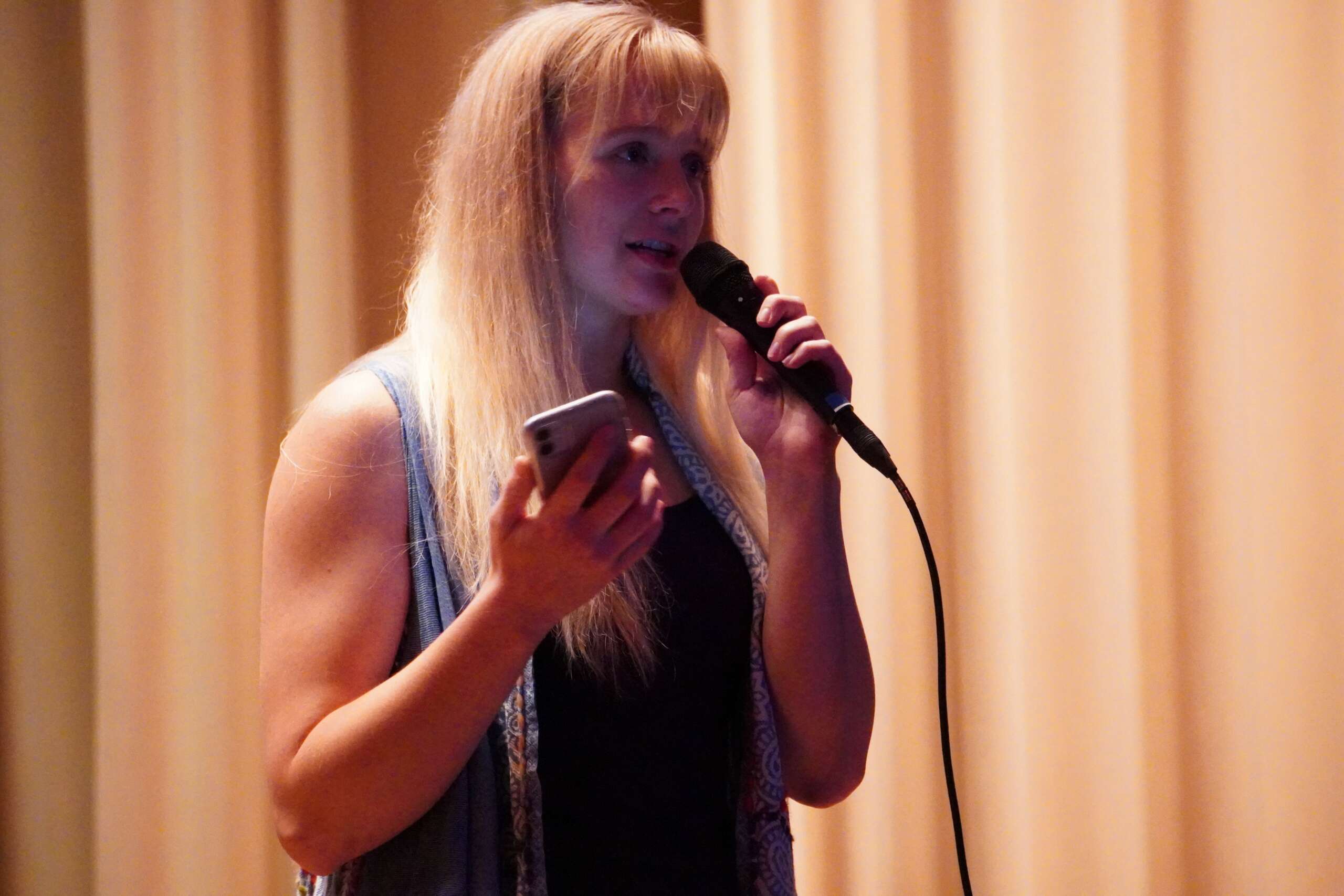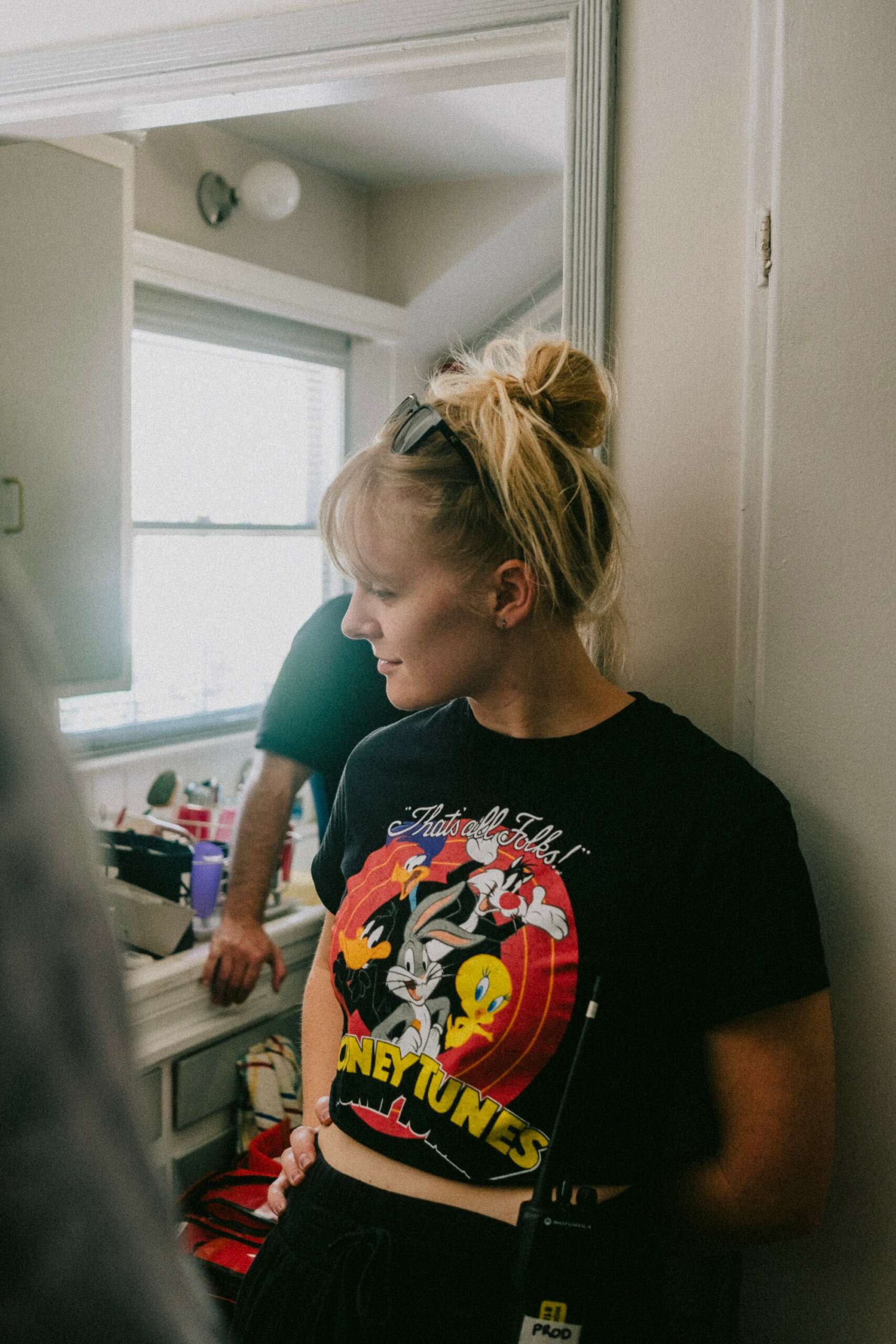We caught up with the brilliant and insightful Anastasia Burnett a few weeks ago and have shared our conversation below.
Alright, Anastasia thanks for taking the time to share your stories and insights with us today. Was there an experience or lesson you learned at a previous job that’s benefited your career afterwards?
My first job in film entertainment was at a startup production company that was run rather poorly. I came in as an intern and quickly was promoted to an assistant. I took on work well beyond the scope of an assistant but it taught me lots about the business and film making in all its facets. I learned how a company runs and first hand how a movie is made. But the most important lesson came from the leadership. Watching the people in leadership create issues, not take responsibility and make self-seeking decisions taught me a valuable lesson in what not to do in entertainment or any work environment. These experiences can be just as crucial as the good examples because it has helped me model a framework of how I want to treat people, conduct my own responsibilities and cultures I want to create. Unfortunately it was birthed out of an un-positive experience and toxic environment; however, I now know first hand why integrity, honesty, respect, kindness, vision and intentionality are important for any working environment.



Awesome – so before we get into the rest of our questions, can you briefly introduce yourself to our readers.
I studied communications and theater and moved to Los Angeles after graduation for a summer acting program. I stayed in LA after that summer because I had a great community through that program; however, I did not initially want to do film. I pursued theater for about 2 years only to realize that the pursuit took the joy out of it for me. I made a shift to focus my pursuits on producing and completed a 10 week producing mentorship program. This program made me realize that I had a love of storytelling in this medium. After the mentorship I got an internship at a startup company. A year later I wanted to focus more on family content in an already established studio. I was lucky enough to land a temp assistant gig at an animation studio and bounced around a couple of desks before discovering artistic management. Artistic Management focuses on the staffing needs of productions at the studio in addition to internal development. It is supporting artists across all productions while also maintaining an understanding of studio processes and goals, so lots of right and left brain while focusing on immensely talented artists. It is a very people oriented role so although I am not working directly on the creative, I love working with the artists. I was brought on to the TV side of things as a coordinator and a year later was promoted to the position I have now held for a year and a half. I enjoy the scope of studios and the amount of problem solving, strategy, business and creative decisions that need to go into making content at such a large scale. Plus, the people I work with are people who I would like to work with for the length of my career. It is a blessing when you find a great work place with great people whose vision you align with. It is rarely easy but it is worth it.
Working in an overhead position has given me freedom to produce passion projects on my own time. In the last two years I have produced a short film and sci-fi proof of concept in virtual production. I love my position in animation and at the studio but sometimes I like to get in the weeds of filmmaking with friends to just make something. It is especially rewarding when you are proud of your work.
Ultimately what I am most proud of at work and in my personal projects isn’t the results but the process where people feel valued, cared for and where people have creative freedom to explore, dream and imagine. As someone who started out in creative, I understand that art comes from someone’s heart and experiences. If those things are not cared for, the creative will suffer. There are boundaries and limitations especially within the business side of things in regards to what is possible at any given time; however, that does not mean a relationship or person should suffer because of that. It may just mean the timing isn’t right. Every project that is made regardless of the scale is a miracle in its own right and some miracles need to wait for the right timing; however, there are always stories being told and it is a privilege to be a part of it.



Learning and unlearning are both critical parts of growth – can you share a story of a time when you had to unlearn a lesson?
A lesson I learned early in my career is that I have to prove myself at every opportunity in order get ahead or show that I am of value. Although there is value in showing up and exceeding expectations, I realized that I felt like I needed to prove myself because I did not realize my own inherent value nor the value I brought to my workplace. Workaholism and addictions come from this mind set of “never enough”. It is difficult to get a job at a major studio or even to get any sort of project off of the ground but whether or not something happens cannot determine my value because there are so many forces at play outside of my control. It was a mindset driven by fear that it would remove joy from the day to day tasks and the people and stories I was called to serve. It is still a struggle sometimes but finding my value outside of what I do has allowed even more joy and discovery in the work of my hands because it has become an outpour and overflow of joy rather than an attempt at validation or fear.
What do you think is the goal or mission that drives your creative journey?
Servant Leadership! You are never greater than the people around you. When you see the humanity in everyone around you, collaboration and grace flows much easier. I like to use the analogy that my goal is to create sand boxes for artists to build their sand castles in and just like any playground, if one person is shouting at other people or saying “no” all the time, play is no longer fun or explorative. Coming from a theater background, my philosophy is more “yes and…” That is not to say that I say yes to everything but if the answer is no– why and present an opposite direction for it to go in.
Another aspect of servant leadership is if you are serving those around you, you never stop learning! There are always things to do, new ways of approaching things and different sides to the puzzle. Plus the people doing the work have thousands of life stories they can share. It is endlessly fascinating to be curious about those around you and the work being done.
Contact Info:


